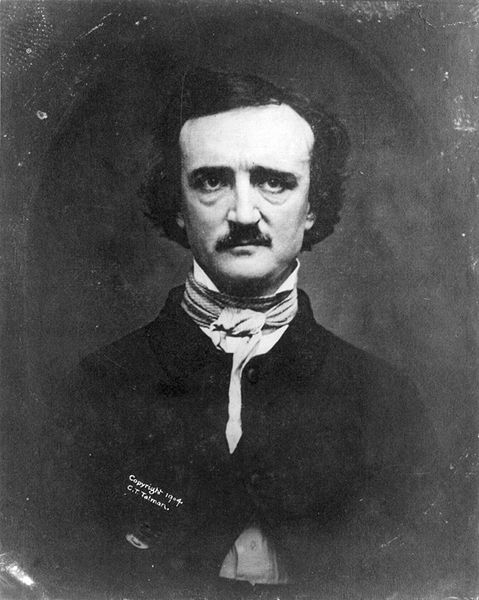|
||||||||||||||||||||||||||||||||||||||||
|
Speculation, of course, is busy as to the immediate and ultimate results of this discovery—a discovery which few thinking persons will hesitate in referring to an increased interest in the matter of gold generally by the late developments in California; and this reflection brings us inevitably to another—the exceeding inopportuneness of Von Kempelen's analysis. If many were prevented from adventuring to California by the mere apprehension that gold would so materially diminish in value, on account of its plentifulness in the mines there. . . what impression will be wrought now, upon the minds of those about to emigrate, and especially upon the minds of those actually in the mineral region, by the announcement of the astounding discovery of Von Kempelen? . . . the announcement of the discovery six months ago would have had material influence in regard to the settlement of California.Though not the most famous of Poe's fanciful stories and poems—works like "The Tell-Tale Heart," "The Fall of the House of Usher," and "The Raven"—Poe's imaginative reshaping of California's mineral worth is nevertheless delightful. |
|||||||||||||||||||||||||||||||||||||||
|
© 2000-2013 California Legacy Project, Santa Clara University English Department, Santa Clara University, 500 El Camino Real, Santa Clara, CA 95053.
For more information: Terry Beers, 408 554 4335, or . 



|
|

|








